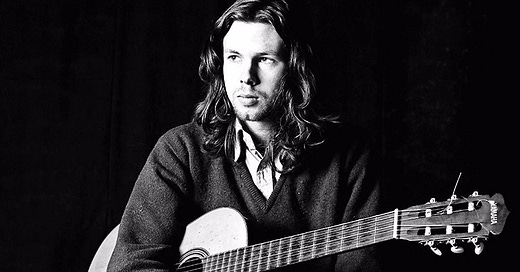Il tempo mi ha detto di non chiedere di più, un giorno il nostro oceano troverà la sua riva.
Nick Drake
Di tutti gli album che ho mai realizzato, i due che ho prodotto con Nick sono quelli di cui vado più fiero. Li ascolto spesso perché era straordinariamente bravo – nulla di ciò che ha fatto è mai stato meno che sorprendente, e aveva il dono di scrivere …
Keep reading with a 7-day free trial
Subscribe to (((RADIO PIAN PIANO))) to keep reading this post and get 7 days of free access to the full post archives.



